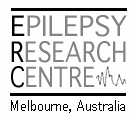Neurocognitive Group
Our research has concentrated on language and memory function in epilepsy, with the aim of understanding the relationship between these and the brain disorders that cause epilepsy. Accordingly we have studied language and memory in relation to structural (MRI) and functional neuroimaging (fMRI and PET) and neuropathological classification of disease.
Our research objectives include:
-
To provide a clinical neuropsychological service to the Comprehensive Epilepsy Program. The essential aim of this service is to characterise the neurocognitive status of patients with intractable seizures who are being considered for surgical treatment, and to estimate the post-operative risk of cognitive complications. Patients are monitored neuropsychologically after surgery for the purpose of documenting cognitive outcome.
-
To carry out research on the relationship between epileptogenic pathology and cognitive function. The work is aimed at improving our understanding of the organization of cognitive function in the focal epilepsies, and improving our capacity to predict cognitive outcomes after surgery. This work is performed with colleagues in the School of Behavioural Science and the Department of Neuropsychology at Austin Health.
-
Exploring psychosocial issues related to individuals and families with epilepsy
-
Developing a better understanding of non-epileptic seizures
Research Outcomes
-
Characterisation of the clinical presentation of memory disturbances in epilepsy.
-
Lateralisation of verbal memory is relative to specific cognitive processes involved in the various verbal memory paradigms that are used in the evaluation of patients with epilepsy. We have termed this the task-specificity model.
-
Our improved understanding of the intratemporal organization of verbal memory has led to better prediction of surgical outcome.
-
Language production, in the form of connected discourse has been studied in temporal lobe epilepsy, and has led to the view that typical behavioural characteristics such as circumstantiality and stickiness might be of psycholinguistic origin.
-
fMRI paradigms for the lateralisation of language have been developed, and are now preferred, in many cases, to invasive procedures such as the sodium amytal test.
-
Parahippocampal studies have highlighted its importance in the mediation of arbitrary and semantic forms of verbal memory.
